
Fiancé vs Fiancée When And How Can You Use Each One?
Fiancé vs. fiancée | Danielle McLeod | Usage Romance languages always make everything pertaining to love sound so exotic, and unsurprisingly many words are used in their original form in English as well. After all, how can one improve upon perfection? Fiancé (or is that fiancée?) is one such word meant to convey the engagement between two people.

Fiance vs. Fiancee The Correct Way to Use Each Confusing Words
A fiancé is man who is engaged to be married. One way that French words specify gender is with their endings. In this case, the extra E at the end of fiancée indicates that the betrothed is a woman. You will find this all over the place in the French language.

Fiancée Vs Fiancé Your Guide to Understanding These Terms
noun fi· an· cée ˌfē-ˌän-ˈsā fē-ˈän-ˌsā Synonyms of fiancée : a woman engaged to be married Did you know? Promises, Promises: The History of Affidavit, Affiance, & Fiancé Affidavit refers to a written promise, and its Latin roots connect it to another kind of promise in English.

Fiancé vs. Fiancée What's the Difference? Find Out Now! ESLBUZZ
Fiancé refers to males, denoting a man who is betrothed or engaged to be married. The word isn't generally used as a standalone, but in relation to the woman the man is engaged to. For example: Jane's fiancé helped her write an excellent résumé. Christine was very sad her fiancé couldn't accompany her. Fiancée
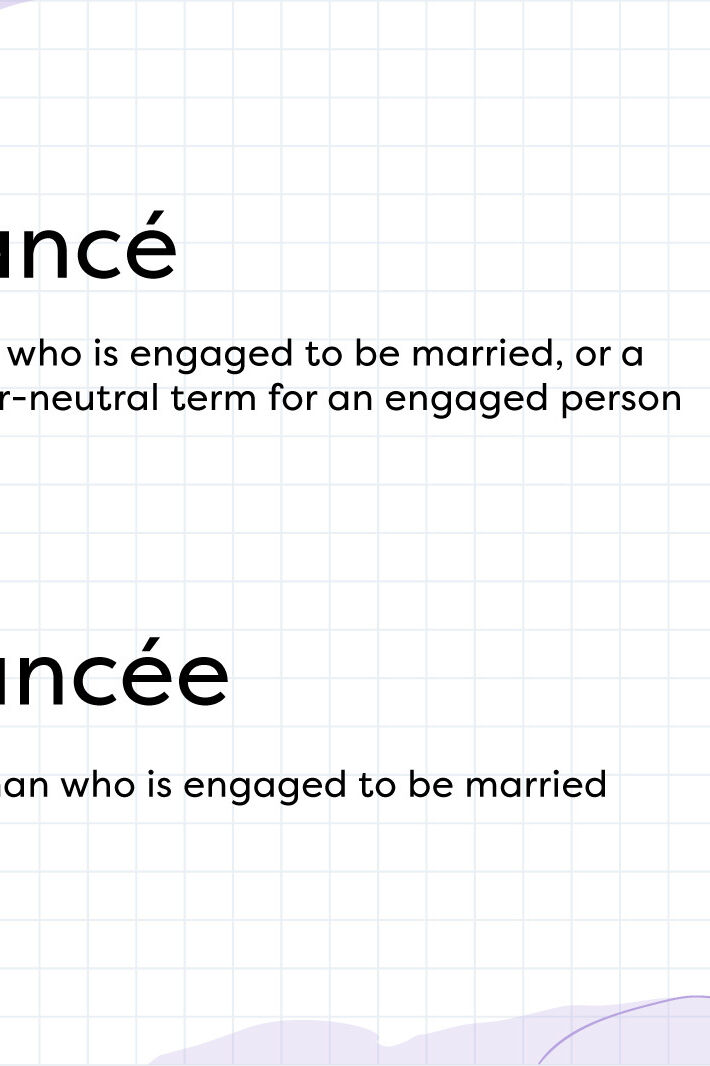
Difference Between Fiancé and Fiancée Differences Explained
Decoding the Difference: When to Use Fiancé vs. Fiancée. Understanding the historical distinction between fiancé and fiancée is crucial for those wishing to engage with gender-specific terms in their engagement language. For a man engaged to be married, the appropriate term is fiancé, while fiancée is used when referring to a woman..
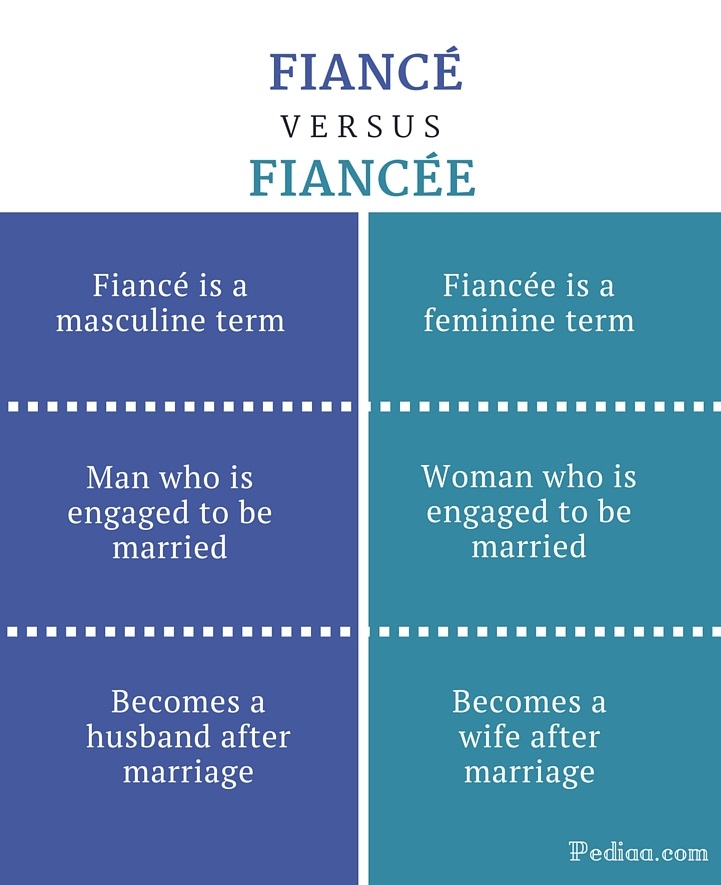
Difference Between Fiancé and Fiancée
Fiancé is a noun that refers to a "man who is engaged to be married." It's a loanword —or word taken from another language with little to no modification—that we borrowed from French. Fiancé is pronounced like fee-ahn-SAY and should always be spelled with an "-é" (acute accent). My fiance is obsessed with fantasy football.
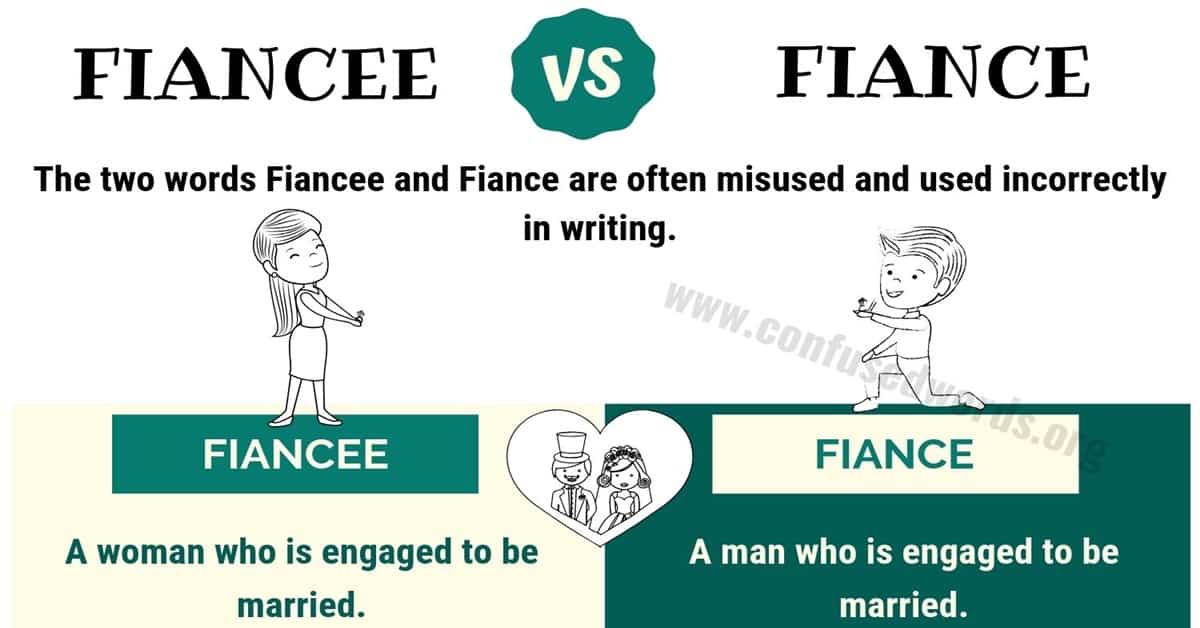
FIANCEE or FIANCE How to Use Fiance vs Fiancee Correctly? Confused Words
Vocabulary Versus Spellings Fiancé vs. Fiancée: Does the Extra 'E' Make a Difference? By Jennifer Gunner, M.Ed. Education , Senior Writer Updated June 9, 2022 Image Credits You're ready to post your engagement on social media, but can't decide whether to use fiancé or fiancée.

Fiancée Vs Fiancé Your Guide to Understanding These Terms
Final Thoughts on 'Fiancé' and 'Fiancée'. To recap, 'fiancé' refers to an engaged man, and 'fiancée' refers to an engaged female. It might be confusing to remember which is which. Try to remember that the letter 'e' is often feminine. And there are two of them at the end of the female version of the word.
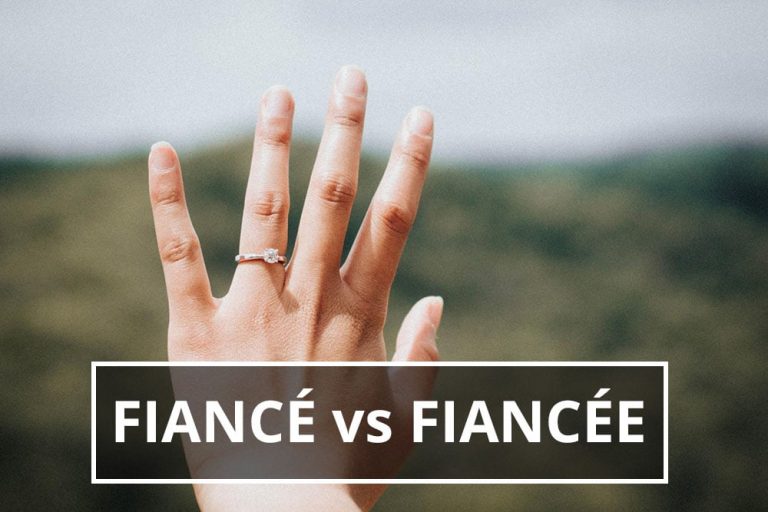
Q&A Fiancé vs fiancée Australian Writers’ Centre blog
Key Differences Between Fiance And Fiancee So there you have it! The difference between fiance and fiancee is simply the gender of the person who is engaged. Fiance vs. Fiancee Similarities Both Fiance and Fiancee are couples Both Fiance and Fiancee are connected to each other Both Fiance and Fiancee are romantic Fiance vs. Fiancee Pros and Cons

FIANCEE or FIANCE How to Use Fiance vs Fiancee Correctly? Confused Words
Let's look at the difference in more detail. Fiancé (for Men) Fiancé, with one E, traditionally refers to an engaged man. However, many modern English speakers use fiancé as gender-neutral language to refer to anyone who is engaged. Fiancée (for Women) Fiancée, with an extra e, refers specifically to an engaged woman.

Fiancée vs. Fiancé BusinessWritingBlog
The Quick Answer. Use "fiancé" for a man. Use "fiancée" for a woman. It is acceptable to write "fiance" and "fiancee" (i.e., to replace the é with e), but using é looks more elegant. The words fiancé and fiancée both mean someone you plan to marry. So, why are there two spellings? Well, it depends whether you're talking about a male or a.

Fiancé vs. Fiancée. What’s the Difference?
Home / English / October 28, 2022 Fiance vs Fianceé—Which is Correct? (Grammar + Examples) Is it fiance or fianceé? What is the correct way to spell the upcoming marriage of a womanly partner? Learn the key differences and correct spelling in this short American English guide. Which is the correct usage? Fiance vs fianceè

FIANCÉE Or FIANCÉ Useful Difference Between Fiancée Vs Fiancé 7 E S L
A man engaged to be married Like the Merriam-Webster Dictionary, Dictionary.com defines ' fiance ' as a noun that means: An engaged man However, the Oxford Dictionary defines ' fiance ' as a noun that means: Someone betrothed or engaged to be married Synonyms and Similar Words to 'Fiance'

Fiance vs Fianceé—Which is Correct? (Grammar + Examples) GrammarBrain
As you might imagine, the sex of one's engaged partner makes a considerable difference. Calling a man's fiancé his fiancé, or calling a woman's fiancée her fiancée, raises a new issue in the reader's mind. Is the writer referencing a same-sex marriage? To avoid any possible confusion, it's best to make the distinction between the words.

"Fiancée" vs. "Fiancé" in English LanGeek
What is the difference between fiancé vs. fiancée? The foreign words fiancé and fiancée are straight-forward when it comes to the English language because we use them to discuss one topic: marriage. Either term is gendered and adapted from the French language to describe people who are engaged. But did you know there's a difference between the two?
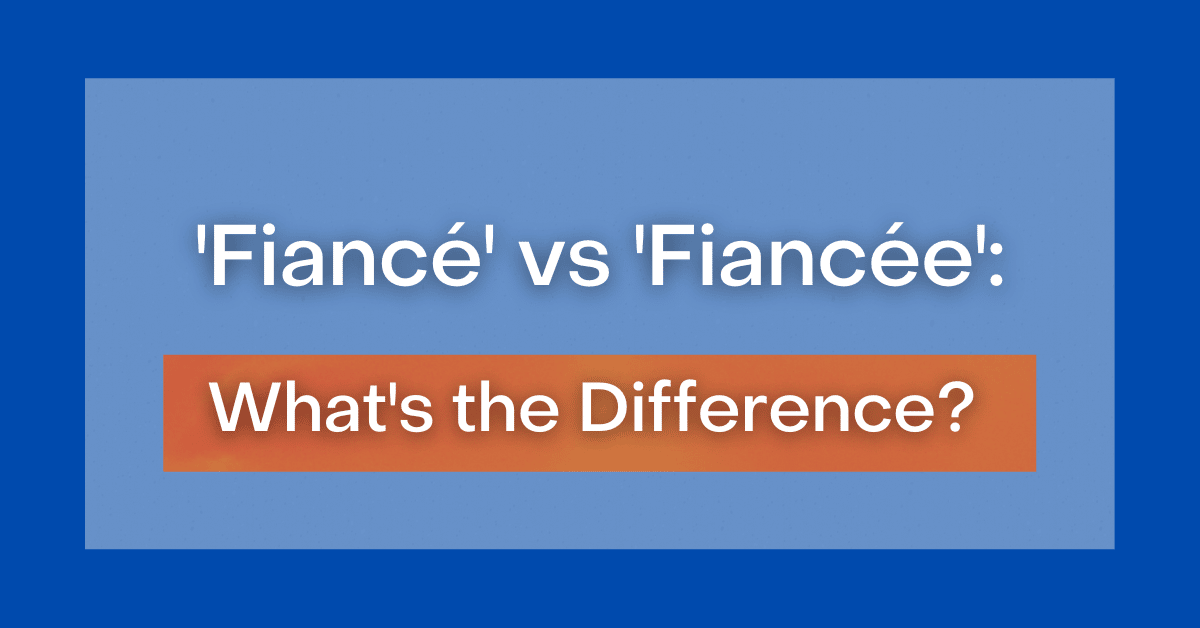
‘Fiancé' vs 'Fiancée' What's the Difference?
Understanding Fiancé vs. Fiancée Definition of Fiancé A fiance is a man who is engaged to be married. The term comes from the French word "fiancé," which means "betrothed." It is pronounced "fee-ahn-say." Definition of Fiancé e A fiancee is a woman who is engaged to be married. The term comes from the French word "fiancée," which means "betrothed."